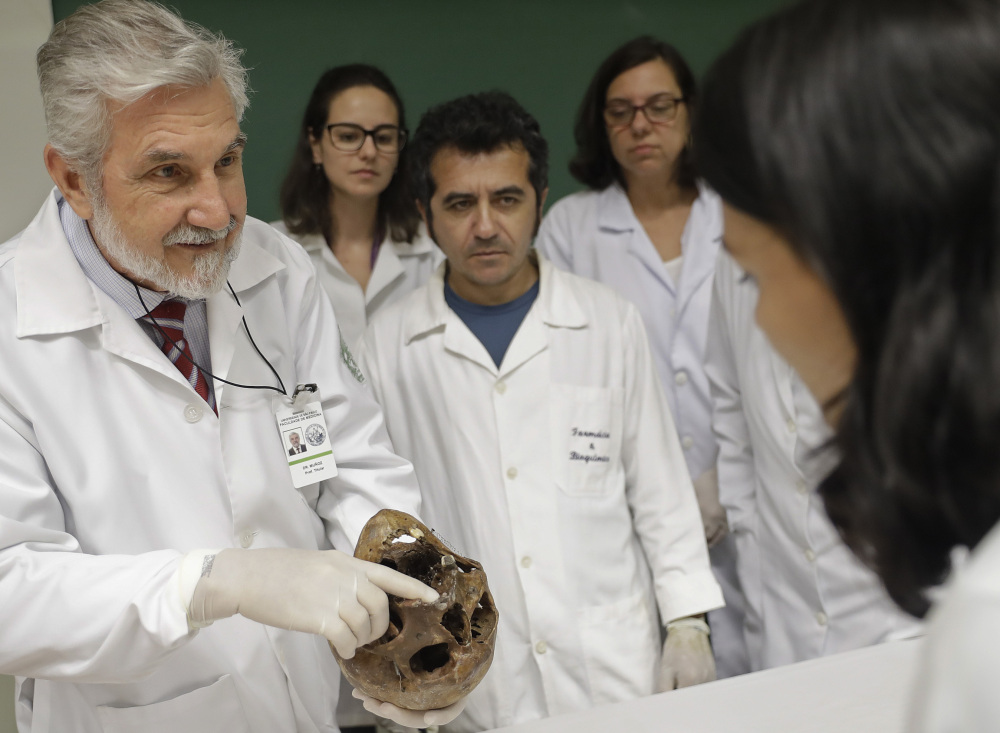SAO PAULO — For more than 30 years, the bones of Josef Mengele, a German doctor who conducted horrific experiments on thousands of Jews at Auschwitz, lay unclaimed inside a blue plastic bag in Sao Paulo’s Legal Medical Institute.
Dr. Daniel Romero Munoz, who led the team that identified Mengele’s remains in 1985, saw an opportunity to put them to use. Several months ago, the head of the Department of Legal Medicine at the University of Sao Paulo’s Medical School obtained permission to use them in his forensic medical courses. Today, his students are now learning their trade studying Mengele’s bones and connecting them to the life story of the man called the “Angel of Death.”
“The bones will be helpful to teach how to examine the remains of an individual and then match that information with data in documents related to the person,” Munoz said recently, flanked by students.
Mengele died nearly four decades ago. He had been on the run for years, hiding while being pursued for performing experiments on inmates and sending thousands of them to the gas chambers during World War II.
Mengele’s life on the run, and the mystery surrounding his whereabouts, are part of what make his bones a useful teaching tool, Munoz said.
“For example, examining Mengele’s remains, we saw a fractured left pelvis,” he said, adding that “information found in his army record said that he fractured his pelvis in a motorcycle accident in Auschwitz,” the notorious Nazi death camp in Poland.
After the war, Mengele fled to Argentina. In 1960, he arrived in Sao Paulo, where he received shelter from German couple. Mengele, then 67, died while swimming in a beach in the coastal town of Bertioga in 1979. The couple buried him under a false name. In 1985, his body was exhumed. Teams from Germany, Israel, the United States and Brazil confirmed it was Mengele.
Professor Maria Luiza Tucci Carneiro, a historian who coordinates the University of Sao Paulo’s Laboratory for the Study of Ethnicity, Racism and Discrimination, said she hopes the classroom learning eventually goes beyond the science to history and ethics.
Send questions/comments to the editors.



Success. Please wait for the page to reload. If the page does not reload within 5 seconds, please refresh the page.
Enter your email and password to access comments.
Hi, to comment on stories you must . This profile is in addition to your subscription and website login.
Already have a commenting profile? .
Invalid username/password.
Please check your email to confirm and complete your registration.
Only subscribers are eligible to post comments. Please subscribe or login first for digital access. Here’s why.
Use the form below to reset your password. When you've submitted your account email, we will send an email with a reset code.